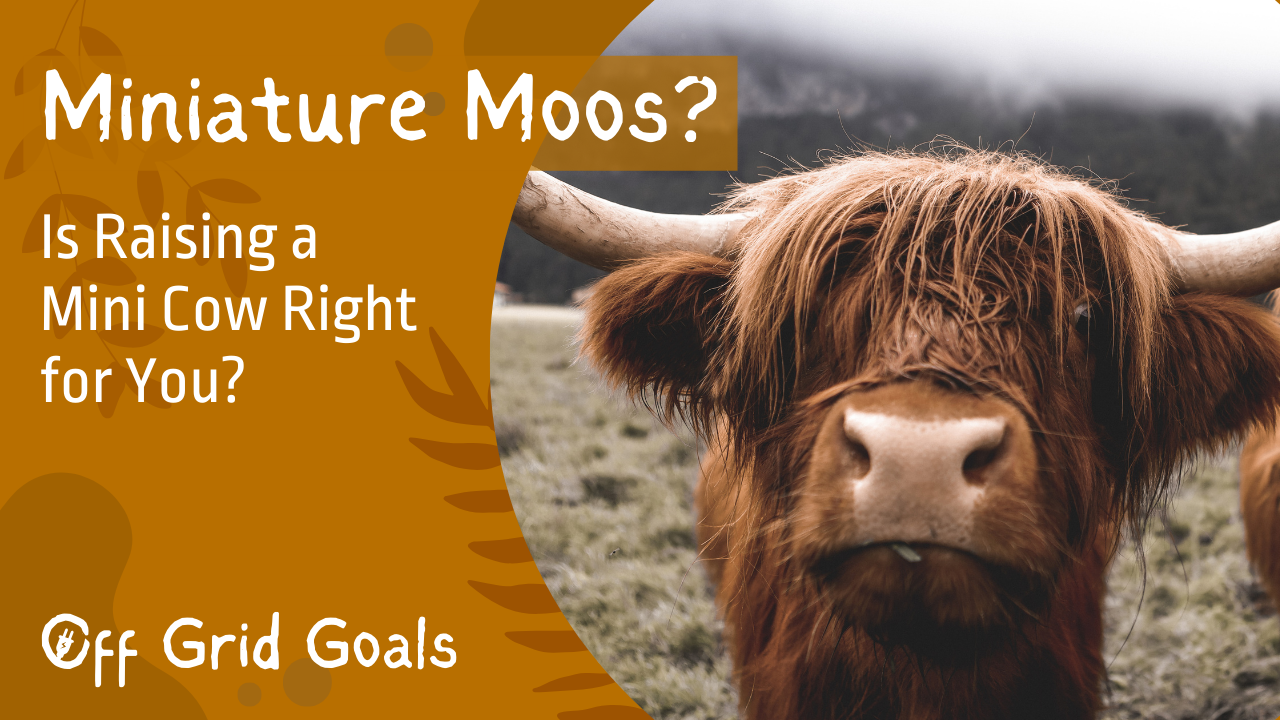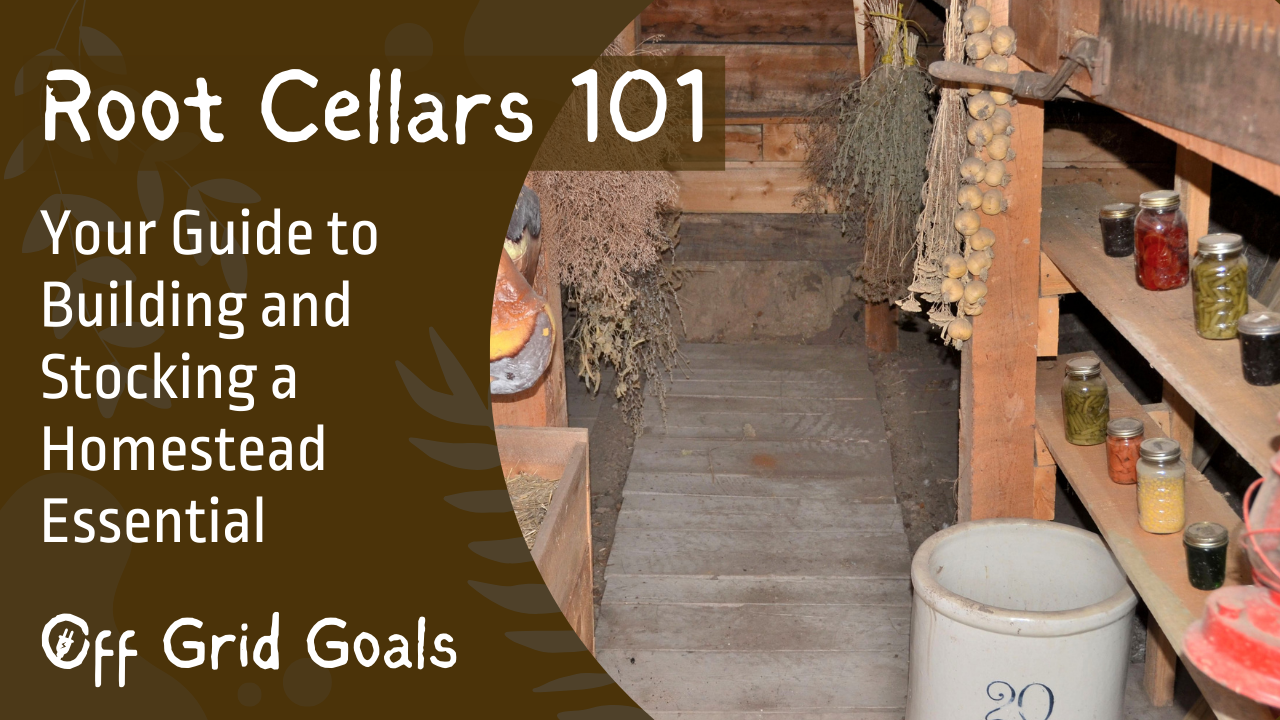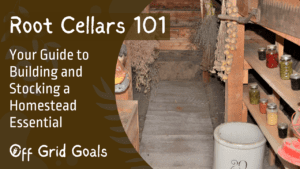You’ve decided to dip your toes into the world of homesteading and livestock keeping – but instead of the usual chickens and goats, you’re thinking outside the barnyard with a miniature cow.
These pint-sized bovines may be small in stature, but they come with big personalities and plenty of benefits for the aspiring homesteader.
But before you take the plunge and bring home your very own mini moo, there are some important considerations to keep in mind.
In this post, we’ll explore the top considerations in adopting and raising a miniature cow.
1. Space Requirements:
While miniature cows may be smaller than their full-sized counterparts, they still require adequate space to roam and graze. Before bringing home a miniature cow, assess your available space and ensure you have enough pasture area for grazing, as well as shelter for protection from the elements. Miniature cows are well-suited to smaller properties, but it’s important to provide them with enough room to exercise and graze freely.
The amount of space needed for a miniature cow depends on various factors, including the individual cow’s size, breed, and activity level, as well as the quality of available pasture and the climate of the region.
On average, a miniature cow will require around 1 to 2 acres of pasture per animal for grazing and exercise. This allows them enough room to roam, graze on fresh grass, and engage in natural behaviors like socializing and exploring their environment. However, it’s important to note that the space requirements can vary depending on the quality of pasture and the availability of supplemental feed.
In addition to pasture space, miniature cows also require shelter to protect them from the elements, such as extreme weather conditions or predators. A simple three-sided shelter or run-in shed is sufficient to provide protection from rain, wind, and sun, and should be large enough to accommodate all the cows in the herd comfortably.
While miniature cows may require less space compared to full-sized cattle breeds, it’s essential to provide them with enough room to graze, exercise, and access shelter as needed. Adequate space not only ensures the health and well-being of the cows but also allows them to express natural behaviors and lead fulfilling lives on the homestead.
2. Feeding and Nutrition:
Just like their larger counterparts, miniature cows require a balanced diet to thrive. While they may consume less feed overall, it’s important to provide them with high-quality pasture, hay, and supplemental feed to meet their nutritional needs. Work with a veterinarian or livestock nutritionist to develop a feeding plan tailored to your miniature cow’s specific dietary requirements.
Miniature cows are herbivores and primarily graze on pasture grasses and forage. Their diet consists mainly of grass, which provides essential nutrients such as fiber, protein, and carbohydrates. Pasture grazing is an excellent source of nutrition for miniature cows, as it allows them to meet their dietary needs while engaging in natural behaviors like grazing and browsing.
In addition to pasture grasses, miniature cows may also consume other types of forage, including legumes like clover and alfalfa. These forage plants are rich in protein and can supplement the nutritional content of the cow’s diet. Some miniature cow owners may also provide access to hay during periods when fresh pasture is limited, such as during the winter months or times of drought.
While pasture and forage make up the bulk of a miniature cow’s diet, they may also benefit from supplemental feed to ensure they receive all the necessary nutrients. This may include grain mixes formulated specifically for cattle or mineral supplements to provide essential vitamins and minerals. However, it’s important to avoid overfeeding grain or concentrates, as this can lead to health issues such as obesity and digestive problems.
Overall, a balanced diet consisting of pasture grasses, forage, and occasional supplemental feed is essential for the health and well-being of miniature cows. Providing access to high-quality pasture and forage, along with appropriate supplementation as needed, will help ensure that miniature cows thrive and lead healthy, fulfilling lives on the homestead.
3. Health and Veterinary Care:
Miniature cows are generally hardy and resilient animals, but they still require regular veterinary care to stay healthy.
Schedule routine vaccinations, deworming, and health checks with a knowledgeable large animal veterinarian to prevent common illnesses and address any health concerns promptly.
Additionally, be prepared for the occasional veterinary emergency and have a plan in place for accessing veterinary care when needed.
4. Temperament and Handling:
Miniature cows are beloved for their gentle and docile personalities, making them popular choices for hobby farmers, homesteaders, and even as pets. These pint-sized bovines may be small in stature, but they possess big personalities and endearing traits that make them a joy to be around.
One of the defining characteristics of miniature cows is their friendly and sociable nature. They are known for forming strong bonds with their human caregivers and enjoy interacting with people of all ages. Miniature cows are often described as affectionate and curious animals, and they thrive on attention and affection from their human companions. Whether it’s a scratch behind the ears or a gentle pat on the back, miniature cows are quick to show their appreciation with a nuzzle or a friendly lick.
In addition to their friendly demeanor, miniature cows are also known for their calm and laid-back temperament. They are generally easygoing and adaptable animals, capable of adjusting to various environments and living conditions. Miniature cows are well-suited to life on the homestead, where they can graze peacefully in the pasture and soak up the sun in the company of their human family.
Despite their small size, miniature cows are also surprisingly intelligent and can be trained to perform a variety of tasks. From basic obedience commands to more advanced behaviors like halter training and obstacle courses, miniature cows are quick learners and eager to please their human handlers. With patience, consistency, and positive reinforcement, miniature cows can become well-behaved and obedient companions that bring joy and laughter to the homestead.
Overall, the personality and temperament of miniature cows make them wonderful additions to any farm or homestead. Their gentle and sociable nature, combined with their calm demeanor and intelligence, make them ideal companions for both experienced livestock owners and first-time farmers alike. With proper care, attention, and love, miniature cows can thrive in their new home and bring years of happiness and companionship to their human family.
5. Breeding and Reproduction:
If you’re considering breeding your miniature cow, it’s important to understand the responsibilities and challenges that come with it. Research different breeding methods, such as natural breeding or artificial insemination, and consider working with an experienced breeder or veterinarian to ensure successful breeding outcomes. Be prepared for the responsibilities of caring for pregnant cows and newborn calves, including providing appropriate nutrition and veterinary care.
6. Regulations and Zoning:
Before bringing home a miniature cow, familiarize yourself with any local regulations or zoning ordinances that may impact your ability to keep livestock on your property. Some areas have restrictions on the number and type of animals allowed, as well as requirements for fencing, shelter, and waste management. Ensure that your property is compliant with local regulations to avoid potential fines or legal issues.
7. Lifestyle Considerations:
Finally, consider how adopting and raising a miniature cow fits into your overall lifestyle and homesteading goals. Miniature cows require daily care and attention, including feeding, watering, and maintenance tasks such as grooming and hoof trimming. Be prepared to dedicate time and resources to caring for your miniature cow and consider whether it aligns with your lifestyle and commitment level.
Adopting and raising a miniature cow can be a rewarding experience for the aspiring homesteader, but it’s important to approach it with careful consideration and planning. By understanding the space requirements, feeding and nutrition needs, health and veterinary care considerations, temperament and handling requirements, breeding and reproduction responsibilities, regulations and zoning requirements, and lifestyle considerations, you can ensure a successful and fulfilling experience raising your miniature cow.
So, saddle up and get ready to embark on the miniature moo-vement – your mini cow awaits!



















